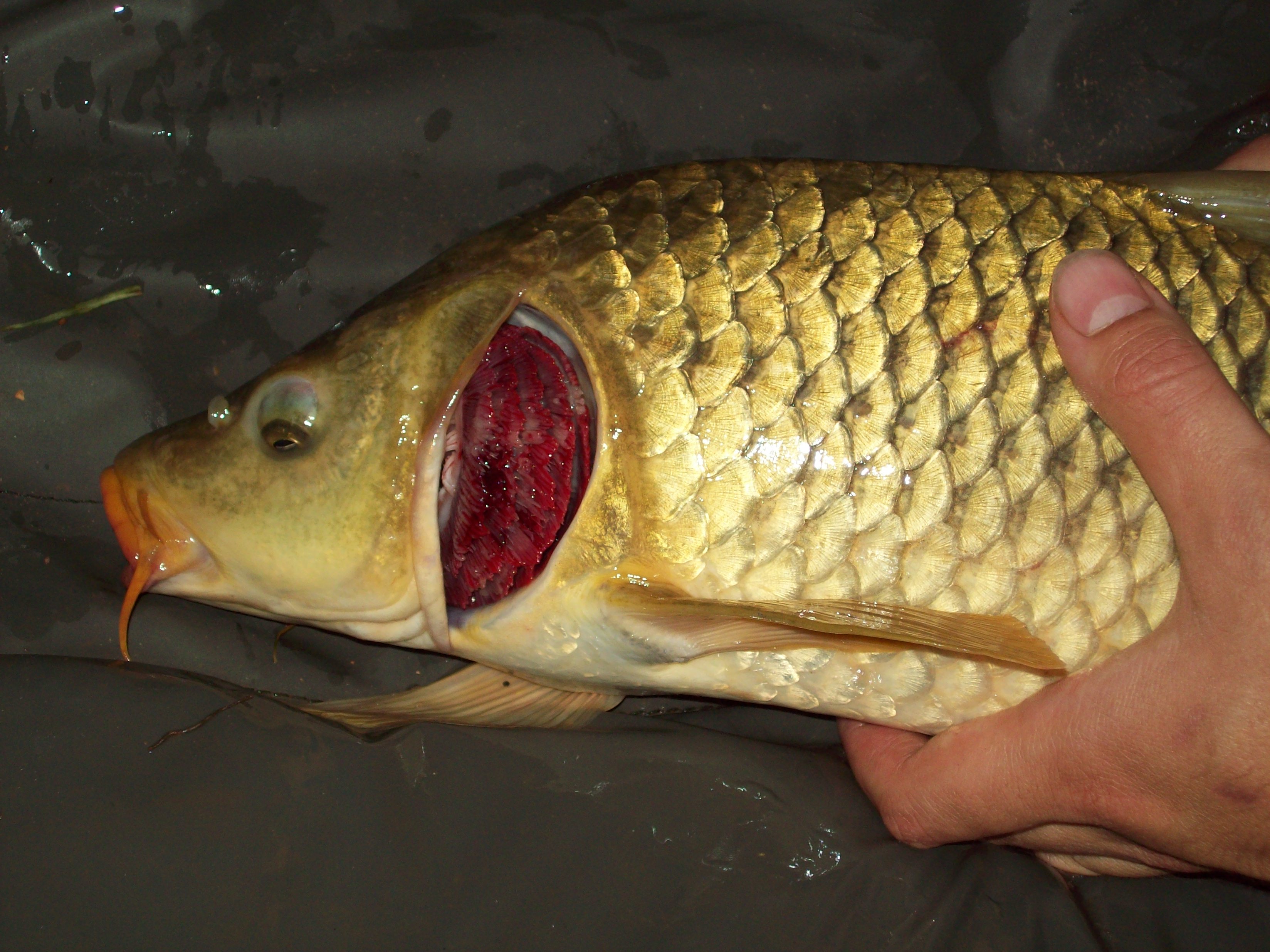Gill
 A gill () is a respiratory organ that many aquatic organisms use to extract dissolved oxygen from water and to excrete carbon dioxide. The gills of some species, such as hermit crabs, have adapted to allow respiration on land provided they are kept moist. The microscopic structure of a gill presents a large surface area to the external environment. Branchia (: branchiae) is the zoologists' name for gills (from Ancient Greek ).
A gill () is a respiratory organ that many aquatic organisms use to extract dissolved oxygen from water and to excrete carbon dioxide. The gills of some species, such as hermit crabs, have adapted to allow respiration on land provided they are kept moist. The microscopic structure of a gill presents a large surface area to the external environment. Branchia (: branchiae) is the zoologists' name for gills (from Ancient Greek ).With the exception of some aquatic insects, the filaments and lamellae (folds) contain blood or coelomic fluid, from which gases are exchanged through the thin walls. The blood carries oxygen to other parts of the body. Carbon dioxide passes from the blood through the thin gill tissue into the water. Gills or gill-like organs, located in different parts of the body, are found in various groups of aquatic animals, including mollusks, crustaceans, insects, fish, and amphibians. Semiterrestrial marine animals such as crabs and mudskippers have gill chambers in which they store water, enabling them to use the dissolved oxygen when they are on land. Provided by Wikipedia
-
1
-
2
-
3
-
4
-
5
-
6
-
7by Meiyue Wang, Zhuoqing Fang, Boyoung Yoo, Gill Bejerano, Gill Bejerano, Gill Bejerano, Gill Bejerano, Gary PeltzGet full text
Published 2021-09-01
Article -
8
-
9
-
10
-
11
-
12
-
13
-
14
-
15
-
16
-
17
-
18
-
19
-
20
